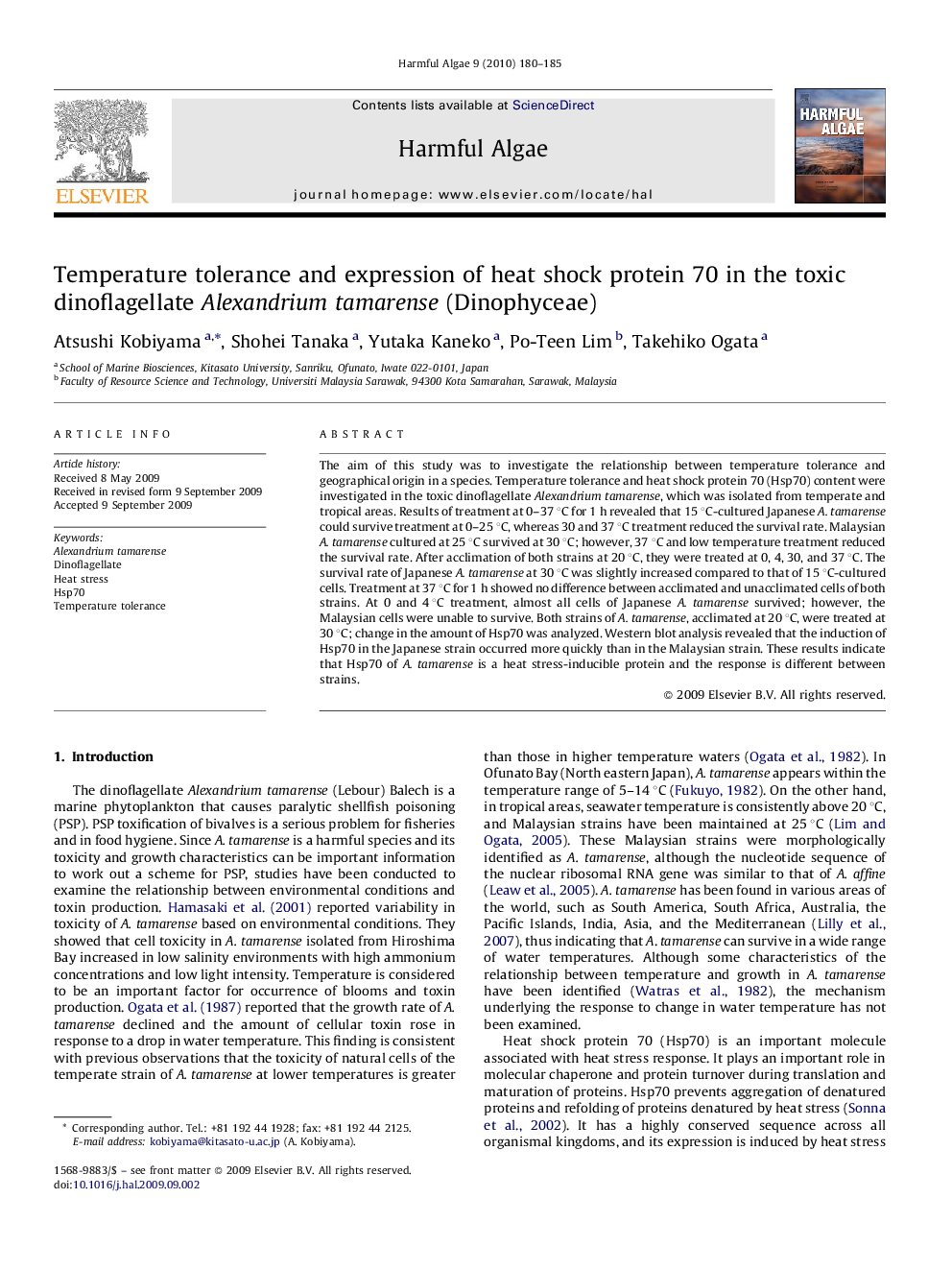| Article ID | Journal | Published Year | Pages | File Type |
|---|---|---|---|---|
| 4546014 | Harmful Algae | 2010 | 6 Pages |
The aim of this study was to investigate the relationship between temperature tolerance and geographical origin in a species. Temperature tolerance and heat shock protein 70 (Hsp70) content were investigated in the toxic dinoflagellate Alexandrium tamarense, which was isolated from temperate and tropical areas. Results of treatment at 0–37 °C for 1 h revealed that 15 °C-cultured Japanese A. tamarense could survive treatment at 0–25 °C, whereas 30 and 37 °C treatment reduced the survival rate. Malaysian A. tamarense cultured at 25 °C survived at 30 °C; however, 37 °C and low temperature treatment reduced the survival rate. After acclimation of both strains at 20 °C, they were treated at 0, 4, 30, and 37 °C. The survival rate of Japanese A. tamarense at 30 °C was slightly increased compared to that of 15 °C-cultured cells. Treatment at 37 °C for 1 h showed no difference between acclimated and unacclimated cells of both strains. At 0 and 4 °C treatment, almost all cells of Japanese A. tamarense survived; however, the Malaysian cells were unable to survive. Both strains of A. tamarense, acclimated at 20 °C, were treated at 30 °C; change in the amount of Hsp70 was analyzed. Western blot analysis revealed that the induction of Hsp70 in the Japanese strain occurred more quickly than in the Malaysian strain. These results indicate that Hsp70 of A. tamarense is a heat stress-inducible protein and the response is different between strains.
